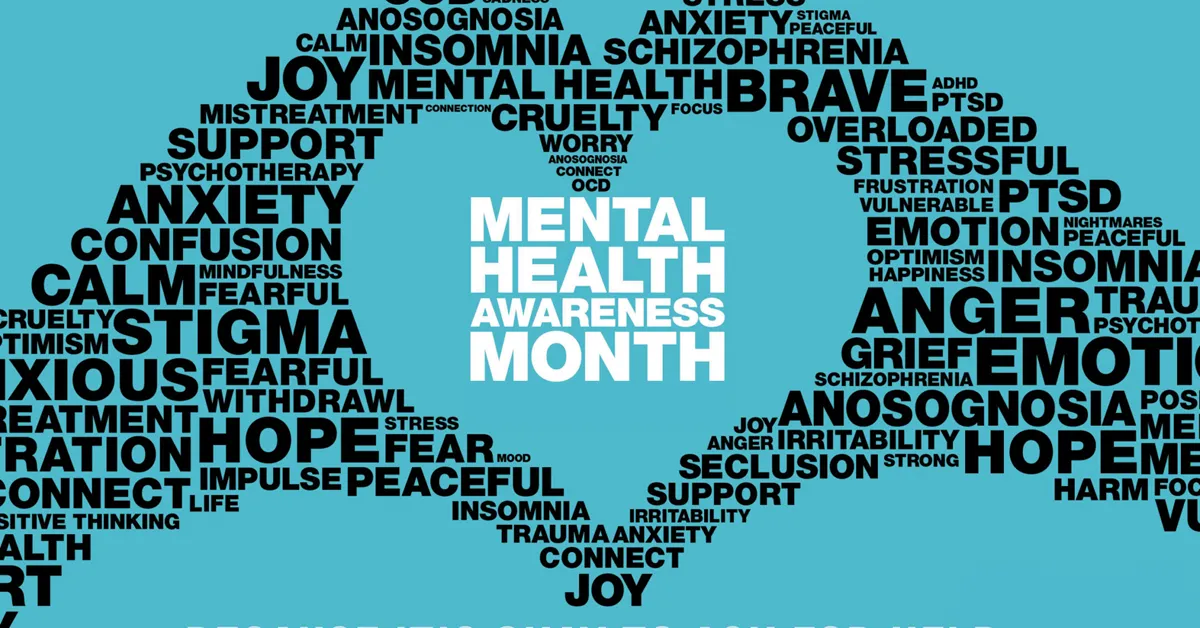Inside Look at a Premier Inpatient Mental Health Program Experience
Inside Look at a Premier Inpatient Mental Health Program Experience
Blog Article
Comprehensive Inpatient Mental Health Solutions for Effective Therapy
Inpatient mental health and wellness services stand for a critical element of the medical care system, supplying a organized and intensive environment for individuals experiencing extreme mental distress. These solutions use a multidisciplinary method, incorporating numerous evidence-based therapies to deal with the complicated demands of patients. Nevertheless, the performance of such extensive care prolongs past immediate stabilization; it likewise includes the change to outpatient assistance, a crucial phase commonly forgot. Exploring the subtleties of this continuum reveals significant implications for both individual recovery and broader mental wellness end results. What variables absolutely affect this change, and exactly how can we improve its efficiency?
Recognizing Inpatient Mental Health And Wellness Services
Inpatient psychological health and wellness services give essential support for individuals experiencing extreme mental distress that can not be taken care of successfully in an outpatient setting. These solutions are created to offer an extensive level of treatment in a structured setting, commonly within a medical facility or specialized facility. Individuals admitted to inpatient programs normally display acute symptoms, such as suicidal ideation, serious clinical depression, or psychosis, demanding continuous tracking and intervention.
The admission procedure normally involves a detailed analysis by psychological health and wellness professionals, that examine the person's psychological state, history, and prompt needs. When admitted, people take part in a selection of restorative methods tailored to their particular needs, consisting of medication administration, individual treatment, and team sessions. This alternative method aims to support the individual's problem, promote security, and foster coping skills.
Inpatient psychological wellness solutions not just address instant health worries but additionally offer as a bridge to recurring treatment. By supplying a regulated setting, these services assist in the development of treatment plans that can be proceeded in outpatient setups, thus making sure a continuum of care and enhancing long-term outcomes for individuals with complex psychological wellness demands.
Key Components of Effective Therapy
Reliable therapy in inpatient psychological health solutions comprises a number of crucial components that cultivate healing and stablizing. Firstly, a detailed evaluation is necessary to recognize the person's specific needs and obstacles. This analysis informs the growth of a tailored therapy strategy, which functions as a roadmap for intervention.
Another crucial element is the multidisciplinary team technique. Collaboration among psychiatrists, psycho therapists, registered nurses, and social employees guarantees that different point of views add to the patient's treatment, boosting the performance of treatment. Evidence-based therapeutic methods, such as cognitive-behavioral treatment (CBT) and dialectical actions treatment (DBT), are also essential, supplying structured techniques that address maladaptive thought patterns and behavioral problems.

Lastly, an emphasis on aftercare planning is essential to make certain a smooth transition to outpatient solutions, reducing the risk of regression and promoting lasting wellness. These cumulative components develop an efficient therapy framework within inpatient psychological health and wellness solutions.
Benefits of Comprehensive Treatment

Thorough care in inpatient mental health and wellness solutions offers various advantages that dramatically enhance client results. Among the key advantages is the holistic method to treatment, attending to not just the emotional symptoms but likewise the physical, social, and emotional requirements of individuals. This detailed assessment allows for tailored interventions that promote overall well-being.
One more these details benefit is the integration of multidisciplinary teams, which fosters partnership among healthcare experts. This collective environment guarantees that clients get coordinated care, reducing the risk of fragmented therapy and boosting interaction amongst caregivers. Comprehensive care facilitates connection of services, allowing for seamless shifts from inpatient to outpatient setups, which is essential for long-term recuperation.

Last but not least, the organized setting of detailed inpatient treatment supplies a risk-free area for clients to take part in therapeutic tasks, aiding them establish coping strategies and resilience. Jointly, these advantages contribute to much more effective therapy and enhanced high quality of life for individuals experiencing psychological wellness dilemmas.
Evidence-Based Therapeutic Approaches
In the world of mental health therapy, evidence-based restorative methods play an essential role in making certain that individuals receive reliable and clinically supported treatments. These techniques integrate the most effective offered research with professional know-how and client worths, promoting a tailored therapy experience that addresses specific needs.
Cognitive Behavior Modification (CBT) is among one of the most widely acknowledged evidence-based approaches, focusing on determining and transforming negative thought patterns and habits. This organized approach has demonstrated efficiency in dealing with conditions such as clinical depression, ptsd, and anxiousness. Likewise, Dialectical Behavior Modification (DBT) is specifically reliable for individuals with borderline personality disorder, emphasizing the development of emotional policy and interpersonal efficiency skills.
In addition, drug monitoring is usually an integral part of evidence-based therapy, as psychotropic medicines can ease signs and enhance overall functioning. Joint treatment designs, which involve multidisciplinary groups, better boost the effectiveness of inpatient services by ensuring thorough examinations and constant monitoring.
Eventually, the assimilation of evidence-based healing strategies not just promotes favorable scientific results but additionally equips patients, see post cultivating a feeling of agency and strength in their psychological health trips.
Transitioning to Outpatient Support
The change from inpatient psychological health solutions to outpatient support notes an important phase in a person's healing trip. This period calls for cautious planning and sychronisation to ensure connection of care and to alleviate the risks of regression or crisis. Reliable discharge planning must commence early in the inpatient remain, involving a multidisciplinary team that consists of psychiatrists, psycho therapists, nurses, and social workers.
Crucial element of an effective transition consist of the growth of an extensive aftercare strategy tailored to the individual's details needs. This strategy needs to describe follow-up consultations, medication administration, and healing interventions, in addition to recognize neighborhood sources and support groups that can assist in recurring recovery.
Furthermore, person and family education is crucial throughout this stage. Understanding the indications of prospective troubles and the importance of adhering to treatment can equip individuals and their assistance systems.
Normal follow-up and reassessment of the outpatient plan are vital to attend to advancing obstacles. By fostering a joint relationship between inpatient and outpatient suppliers, the chance of continual recuperation rises, inevitably boosting the person's quality of life and reducing the risk of readmission.

Final Thought
In summary, detailed inpatient psychological health and wellness solutions use a crucial structure for addressing extreme emotional distress via a multidisciplinary strategy. Inevitably, such thorough treatment is essential for lasting psychological health and wellness and wellness.
The admission process usually involves a comprehensive assessment by psychological health and wellness experts, who evaluate the person's psychological state, background, and immediate needs.Reliable therapy in inpatient mental health solutions consists of a number of essential components that cultivate healing and stabilization.Thorough treatment in inpatient mental health services uses countless benefits that substantially boost patient results.The linked here change from inpatient psychological wellness solutions to outpatient support notes an essential stage in a person's healing trip.In summary, detailed inpatient psychological health and wellness solutions supply a crucial structure for dealing with extreme mental distress via a multidisciplinary technique.
Report this page